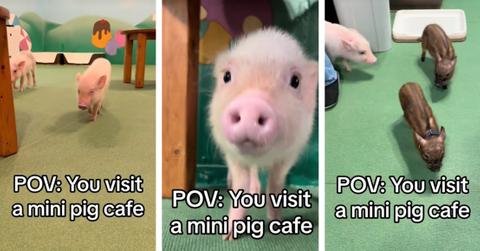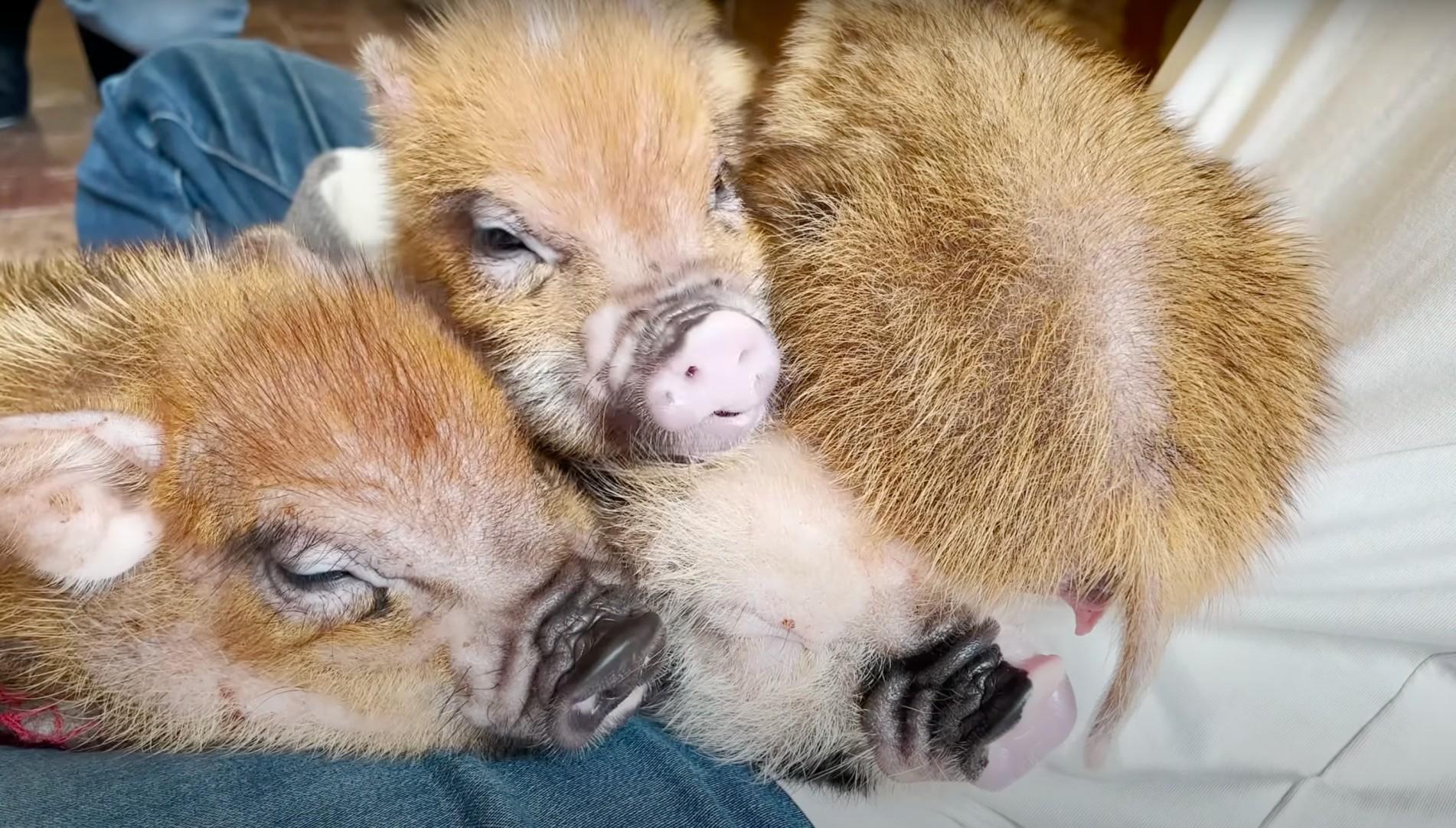Micro Pig Cafés Are the New Cat Cafés — Here's What You Should Know
Published Feb. 2 2024, 12:12 p.m. ET
Japanese animal cafes are cropping up with increasing frequency, offering customers the opportunity to play with "micro pigs," and the trend appears to be here to stay.
The increasing awareness of abuse within the pork industry has engendered a public fondness for piglets while they remain small and puppy-like. Whether it's owning a pig for clout or adopting a pig for great PR, people love baby pigs.
According to University of Oxford research, seeing cute baby animals activates various brain areas. We also have a world of people who really love drinking coffee. The opportunity to merge the two is too great a siren call for consumers to resist.
Hence, the business of places like Japanese animal cafés. Below, we explore this trend, examine the ethics of visiting a "micro pig" café, and identify where to play with micro pigs.
A micro pig cafe in Japan, Mipig Café, is going viral.
The prominent pig cafe in Japan, Mipig Cafe, opened in 2019 and features 10 locations that allow customers to interact with "adult micro pigs" and, in the process, help them "learn sociality" skills and interact with humans. Per the Associated Press, two additional Mipig Café locations are planned for 2024.
Customers must make a reservation to interact with the pigs, which costs the equivalent of $15 USD for the first 30 minutes.
According to the cafe's FAQ, there is a veterinarian who monitors the "hygiene management" of the pigs, who receive rest "according to the compatibility with each pig['s] physical strength and health condition" and will give a pig in need the space to rest in a separate room from customers.
As viral videos crop up of interactions with adorable pigs playing, sleeping, and nuzzling customers, one repeat visitor explains that Migpig Café "support[s] people who want to keep pigs as pets."
To purchase one of the pigs, customers should plan to spend the equivalent of $1,350, not including food, enrichments, and other necessities to support the pig.
It is unclear where the 10-store supply of "micro pigs" are sourced from, as the website makes no mention of whether the pigs are rescued, bred, or otherwise. A Change.org petition from 2019 is one of a number of attempts to expose the cafe as inhumane, citing that "micro pig" is not an actual breed.
According to a Best Friends article, the booming mini pig business is rife with ethical concerns, including highly restrictive diets, forced breeding, and offspring who may be susceptible to "low bone density, reduced immunity, failure to thrive and decreased mental capacity."
Additionally, according to PETA, labels like "teacup pigs" are not indicative of an actual breed, and the resulting size is instead due to extreme malnourishment.
How to find a mini pig café near you.
It appears that those interested in interacting with the made-up breed of pig will have to travel to Japan in order to do so, as the U.S. has far fewer cafés with animal involvement. According to an article in Scientific American about the growing number of exotic animal cafes outside the U.S., "there’s lots of misconceptions that these animals are domesticated. Fundamentally, they are not.”
There are a large number of cat cafés in the U.S., however. Places like the vegan-friendly Meow Parlour, New York City's OG cat café and rescue group with adoptable cats, offer customers the chance to indulge in ethical food and find a forever home to a rescue cat.
Per PBS, dog-friendly cafes exist, though those are targeted towards consumers who seek to enjoy a cup of coffee alongside their companion dog.
To ensure you're adopting a companion through reputable means, animal shelters offer the opportunity to rescue animals in need, and sanctuaries are the most ethical alternative for those who wish to observe, interact with, and learn more about animals in their natural habitats.

